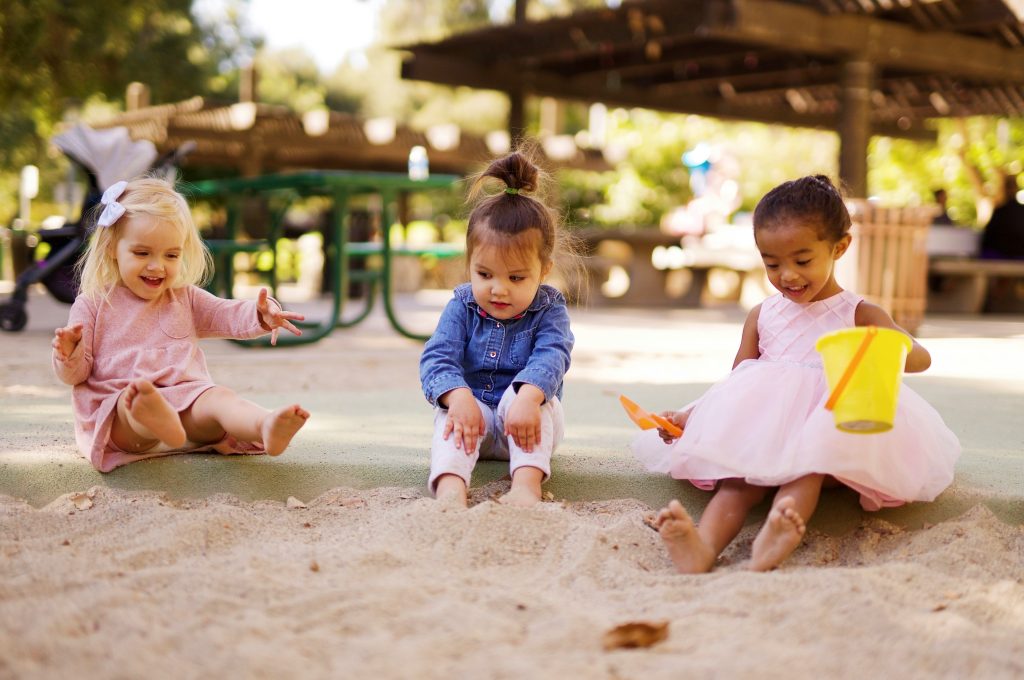It’s a common experience of a parent with a child with autism when surrounded by neurotypical children: wishing your child would separate and join their peers, anxiety over potential behaviors, and wondering how this idea of “play” just seems to come so naturally for other kids.
Navigating social interactions at the playground, at parties, and at any kind of get-together can be very challenging for children with autism. The often chaotic environment created when children are together has a more unpredictable nature, fraught with potential sensory overload, and is far from the structure and stability autistic children crave.
Yet, relationships with peers are pivotal for social and emotional development, along with enhanced quality of life. Friendships are shown to cause less anxiety and depression, increase social skills like turn-taking and problem solving, and make life in general more comfortable and fulfilling.
For those reasons, it is essential for parents and caregivers to find ways to facilitate these important interactions, and help their child to navigate the complex social world.
Prepare Your Child For Peer Interaction
For an autistic child, nothing is osmosis, and it likely feels as if you have to directly teach them everything. This includes common playground games like tag or hopscotch. Many children with autism would struggle to learn the game in a social setting full of confusing peers. Instead, take time to teach them these games ahead of time so that, when they see them being played by their peers, they know what to do.
This goes for the playground equipment as well. Prior to each new school year, or before going to any new park where you hope there will be social interactions, introduce them during a quieter time. Give them a chance to become familiar with the various activities before using them along with other kids.
Using visual aids and social stories to simulate upcoming interactions could be of great assistance here, as they will help your child understand and prepare for what to expect, and give them ideas about how to initiate or join play.
Leverage Common Interests
Through discussions with your child’s teachers or therapists, try to identify peers with similar interests. Many children with autism have specific interests that can motivate them, and children in general connect better with peers who share similar hobbies and activities. This can be a natural gateway to friendship.
Ask the teacher for the child’s contact information, or take time to get to know other parents at pick up or drop off, and point out their shared interests. Autistic children often need parental support in forming friendships past a typical age.
Plan Structured Playdates
You want any peer interaction your child has to be successful, especially if they are few and far between, so start with short and structured playdates that include planned activities. The predictable framework will help reduce any anxiety your child may have. Over time, gradually introduce less structured playdates to help your child adapt to spontaneous peer interactions.
Teach Your Child About Friendship
For children with autism, understanding the abstract concept of friendship can be challenging. Many will perceive any positive interaction as a sign of friendship, unaware of the difference between “acquaintance” and ‘friend”.
If your child has a hard time understanding the concept, take time to teach your child explicitly what makes someone a friend, including the qualities friends typically have, like kindness, trust, and shared interests. Knowing what to expect will help them navigate their social world and form more meaningful relationships.
Increase Their Social Exposure
Focus on giving your child plenty of opportunities to interact with peers, in both structured and unstructured settings. By gradually introducing them to various group activities, clubs, or classes that align with their interests, you provide them with valuable opportunities to interact with others who share similar passions.
These opportunities allow them to practice their social skills in a supportive environment, while also experiencing the enjoyment of connecting with a peer over a shared interest. As they become more comfortable with these interactions, their ability to engage with peers in general will improve.
Challenges with communication and social interaction is a key component of the autism diagnosis, so supporting your child in learning how to play with others might require more patience and understanding. But, with the right support, your child will be able to develop meaningful friendships.
If you need further guidance on supporting your autistic child’s ability to play with peers, don’t hesitate to reach out to discuss our Social Skills program.
Resources:
https://www.autismparentingmagazine.com/make-friends-on-playground-with-asd
https://autismspectrumnews.org/tips-for-parents-and-teachers-to-support-autistic-children-in-developing-and-maintaining-friendships/
https://www.autismparentingmagazine.com/excellent-ways-to-help-asd-child-make-friends

